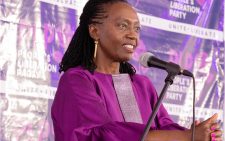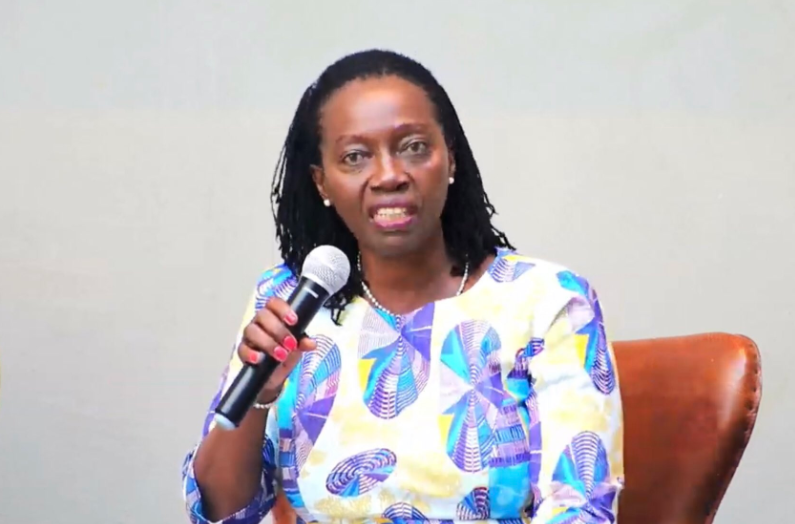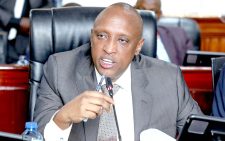Win for activists, citizen as PBO Act takes effect

Last month marked a major milestone in Kenya’s transition politics and socio-economic transformation, entrenching public participation and civic education as crucial components of this process.
The operationalisation on May 9, 2024 of the Public Benefit Organisation Act, 2013, popularly known as the PBO Act after 10 years in cold storage, greatly relieved citizens and civil society in Kenya.
Enacted by Parliament in December 2012 and signed into law by the late president Mwai Kibaki in January 2013, the Act remained dormant until Interior and National Administration Cabinet Secretary Prof Kithure Kindiki declared May 14, 2024 as its commencement date.
It was the longest time in the country’s legislative history that a statute had remained frozen after receiving presidential assent.
The implementation of the Act heralds a fundamental shift in the legal, regulatory and institutional framework governing the regulation of public benefit organisations (PBOs), formerly known as non-governmental organisations (NGOs) in Kenya.
Finally, the PBO Act, 2013 is expected to unleash the power of civil society and the people to improve their lives and achieve lasting change through civic education to enhance democracy and human rights.
For too long, too many communities have felt powerless to change the things they care about. With civic power, citizens can organise and effect change.
Civil society is a critical stakeholder in the political, economic and socio-cultural change process. The Act coming into effect promotes a new sense of cooperation between the national and county governments, development partners and the public.
With more than 50,000 NGOs, foundations, trusts, occupation-based associations, and organisations working at national, county and community levels, Kenya has one of the most vibrant civil society sectors in the region,
Four years of state-NGO consultations led to the development of the Public Benefit Organisations Act in 2013, replacing the NGO Coordination Act (1990) with a new legal, regulatory and institutional environment for the sector.
The PBO Act came into operation just before the 2024 UN Civil Society Conference held in Nairobi held in Nairobi from May 9 to 10. The delay in the Act’s implementation echoed national, regional and global concerns about civil society’s diminished role in directing citizen guidance power, or civic education.
Shrinking, closing or closed civic space was discussed during the Nairobi UN Civil Society Conference of UN member states, agencies, NGOs, 1,700 civil society organisations (CSOs), academic institutions, the private sector and youth.
The conference came ahead of the UN Summit of the Future to be hosted in New York in September to forge a new global consensus on what our future should look like, and what we can do today to secure it.
UN Secretary-General Antonio Guterres said the ImPact Coalitions at the Nairobi conference promised a new era of engagement spanning ages, regions and sectors, focusing on civil society’s energy and expertise for maximum impact.
“Time and again we have witnessed the enormous impact of civil society in every corner of the world, easing suffering, pushing for peace and justice, standing for truth, and advancing gender equality and sustainable development, with many working at great personal risk,” said the UN chief.
The meeting was a testament to civil society’s enduring strong voice despite rising threats and shrinking space. Resolutions at the conference called for the strengthening of civil society in the change and reform process in Africa.
Second liberation
Concerns about the challenges facing civil society also came up during the launch last Wednesday of Inuka Kenya Ni Sisi’s CSO Resilience Report, which addresses the civic space dynamics and resilience in East Africa.
The report calls for an expanded civic space, noting significant regression among East African countries in building democratic, human rights-respecting and rule of law-abiding states. “Across the region, ruling elites are ignoring the rule of law with disastrous consequences to the rights of individuals and groups,” it states.
Back to the 1990s during the era of the second liberation and the struggle for multi-party democracy in Kenya, civil society was instrumental in providing civic education, shaping the role that individuals and organisations play in the process of change.
Civil society shaped relationships amongst wananchi and influenced the proactive role of citizens in social change and transformation, writes political science scholar Prof Peter Wanyande in the book ‘Discourses on Civil Society in Kenya’.
He says it was due to these activities that the level of political consciousness in Kenya improved. Civil society organisations, especially faith-based organisations, gave sanctuary to victims of state terror during the struggle for the reintroduction of multiparty politics.
Unrelenting critisism
These organisations and lawyers were very vocal against injustices and autocratic tendencies of the late president Daniel arap Moi’s government. The late bishops Henry Okullu, Alexander Muge and Presbyterian theologian Rev Timothy Njoya are remembered for their unrelenting criticism of the atrocities of the Moi regime.
The media was particularly instrumental in exposing the weaknesses of the government, giving pro-democracy forces a channel through which they engaged the government and the conservative forces that supported the status quo.
Notably, the media provided citizens with an opportunity to express their misgivings about the government through letters to the editor and other newspaper articles.
The media highlighted civil society organisations that provided citizens with much-needed services the state failed to provide. This support eroded people’s confidence in the state, hardening their resolve to demand real change in governance.
Numerous CSOs engaged in issues of democracy and improved governance, actively engaging the state on constitutional reforms in the 1980s and early 1990s.
They included the Citizen Coalition for Constitutional Change (4Cs), CLARION, Centre of Democracy and Governance, the Institute for Education in Democracy, the National Election Monitoring Unit (NEMU), the Kenya Human Rights Commission and the National Constitutional Executive Council (NCEC).
These CSOs were instrumental in opening up the political space as civil society worked closely with opposition politicians on constitutional reforms and campaigned to expose electoral fraud and malpractices.
Civil society also lobbied the international community to put pressure on the government to respect democracy and the voices of the people and demanded the trial of those who manipulated the 2007 elections.
Before the active participation of CSOs in politics, this critical human activity was the preserve of political parties; now the involvement of CSOs in politics has broadened the scope of political players.
It has led to the demystification of politics and given citizens confidence they too can contribute to political change, asserting that politics is not the preserve of the elite, the Executive and the Legislature.
The PBO Act, 2013 gives impetus to civil society to robustly assume its role and address the challenges, some historical, others relating to the social structure of Kenyan society, and some contemporary.
A major problem is the hostile political environment. Since colonial times, successive governments have not been very receptive to civil society activities, especially the CSOs that question the excesses of the government and the ruling elite.
The media too has been a target, especially for exposing scandals involving government and powerful officials. The government has occasionally been inclined to be uncomfortable with free media, despite claims that it is a liberal government.
Other than dealing with a hostile political environment, civil society has been faced with the challenge of temptation by its leaders to join government.
Following the 2027 elections, the government took deliberate action to incorporate most vocal and committed civil society leaders into government.











